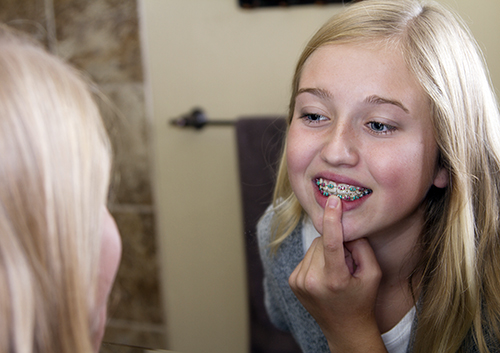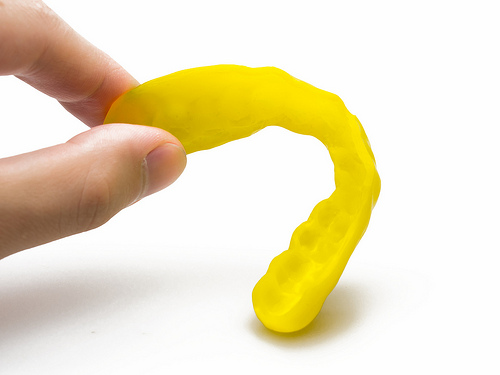What are the benefits of early orthodontic treatment?
April 24th, 2023

Parents usually have numerous questions about orthodontic treatment for their children. According to the American Association of Orthodontists, orthodontic treatment for children should start at around seven years of age. This allows Dr. Kathleen Tavarez to evaluate the child’s existing and incoming teeth to determine whether or not early treatment might be necessary.
What is early orthodontic treatment?
Early orthodontic treatment, known as Phase One, usually begins when the child is eight or nine years old. The goal is to correct bite problems such as an underbite as well as guide the jaw’s growth pattern. It also helps to make room in the mouth for the permanent teeth to be properly placed as they come in. This will greatly reduce the risk of the child needing extractions later in life due to his or her teeth getting crowded.
Does your child need early orthodontic treatment?
There are several ways that you can determine whether your child needs early treatment. If you observe any of these characteristics or behaviors, you should talk to Dr. Kathleen Tavarez.
- Early loss of baby teeth (before age five)
- Late loss of baby teeth (after age five or six)
- The child’s teeth do not meet properly or at all
- The child is a mouth breather
- Front teeth are crowded (you won’t see this until the child is about seven or eight)
- Protruding teeth, typically in the front
- Biting or chewing difficulties
- A speech impediment
- The child’s jaw shifts when he or she opens or closes the mouth
- The child is older than five years and still sucks a thumb
What are the benefits of seeking orthodontic treatment early?
Early orthodontic treatment is begun while the child’s jaw bones are still soft. They do not harden until the children reach their late teens. Because the bones are still pliable, corrective procedures such as braces work faster than they do for adults.
In short, early treatment at our Menlo Park or San Carlos, CA office often allows your child to avoid lengthy procedures, extraction, and surgery in adulthood. Early treatment is an effective preventive measure that lays the foundation for a healthy, stable mouth in adulthood.










 Website Powered by Sesame 24-7™
Website Powered by Sesame 24-7™